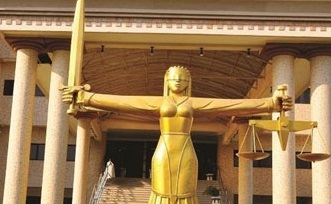
Enugu State High Court will on March 31, rule on the application filed by the Attorney General of State and the State’s Board of Internal Revenue against a consulting firm, Scientific Synergy Consult Ltd over an arbitration dispute.
The plaintiffs aggrieved by arbitration proceedings, which the 1st defendant had commenced against them filed the action in suit marked E/572/2020, questioning the validity of the retainer agreement for tax recovery services that the 1st defendant signed with the 2nd plaintiff dated September 9, 2008.
They also argued that the defendant did not fulfill conditions precedent for the commencement of arbitration and the applicability of the time limitation to the retainer agreement.
They therefore asked the court to declare as nullity, the commencement of the arbitral proceedings and amended their originating summons to join the arbitrator, Chief James Akingbola Akinola as 2nd defendant in the suit, following a court order made on December 14, 2020.
The plaintiffs also obtained an injunction before Justice Okpe, restraining the defendants from proceeding with the arbitration pending the hearing of the motion on notice dated 28 August 2020.
The defendants filed counter-affidavit and further affidavit insisting that the 1st defendant even exceeded the conditions precedent for a valid arbitration.
In addition, the 1st defendant filed an application asking the court to stay its proceedings pending the hearing of the arbitration already commenced.
The 1st defendant also maintained that the 2nd plaintiff had in 2008 engaged it in tax recovery and back duty services, for which it performed back duty audits on the University of Nigeria Nsukka (UNN) and it is entitled to 500 Million commission from the 2nd plaintiff.
But the 2nd plaintiff denied ever having any business relationship with the 2nd defendant. To prove that they mutually enjoyed a fruitful business relationship, the 2nd defendant presented to the court bank tellers and bank drafts, which the 2nd plaintiff paid to it for other tax recovery devices it offered to it as well as cheques it received on its behalf and paid into banks.
In this article:
